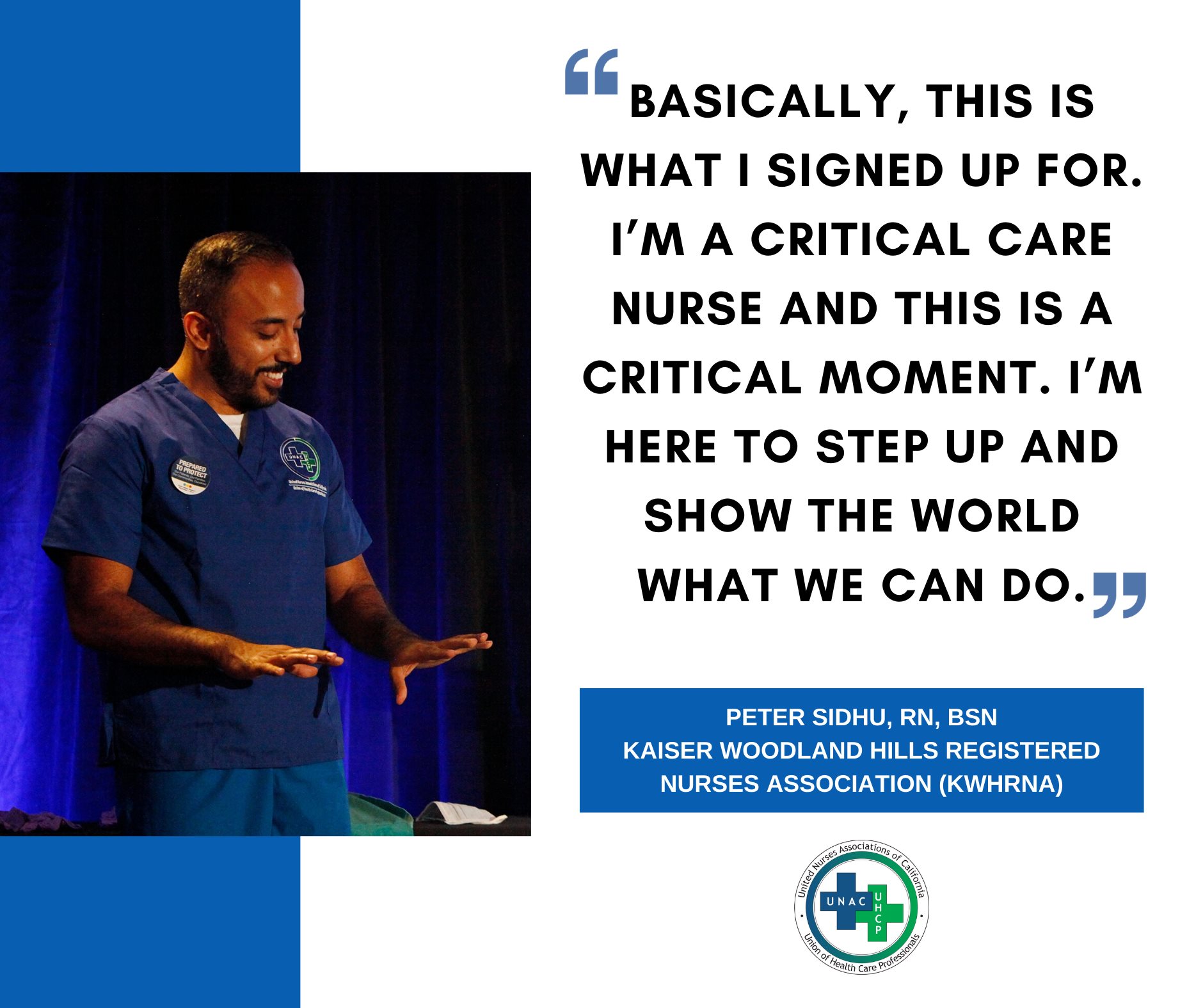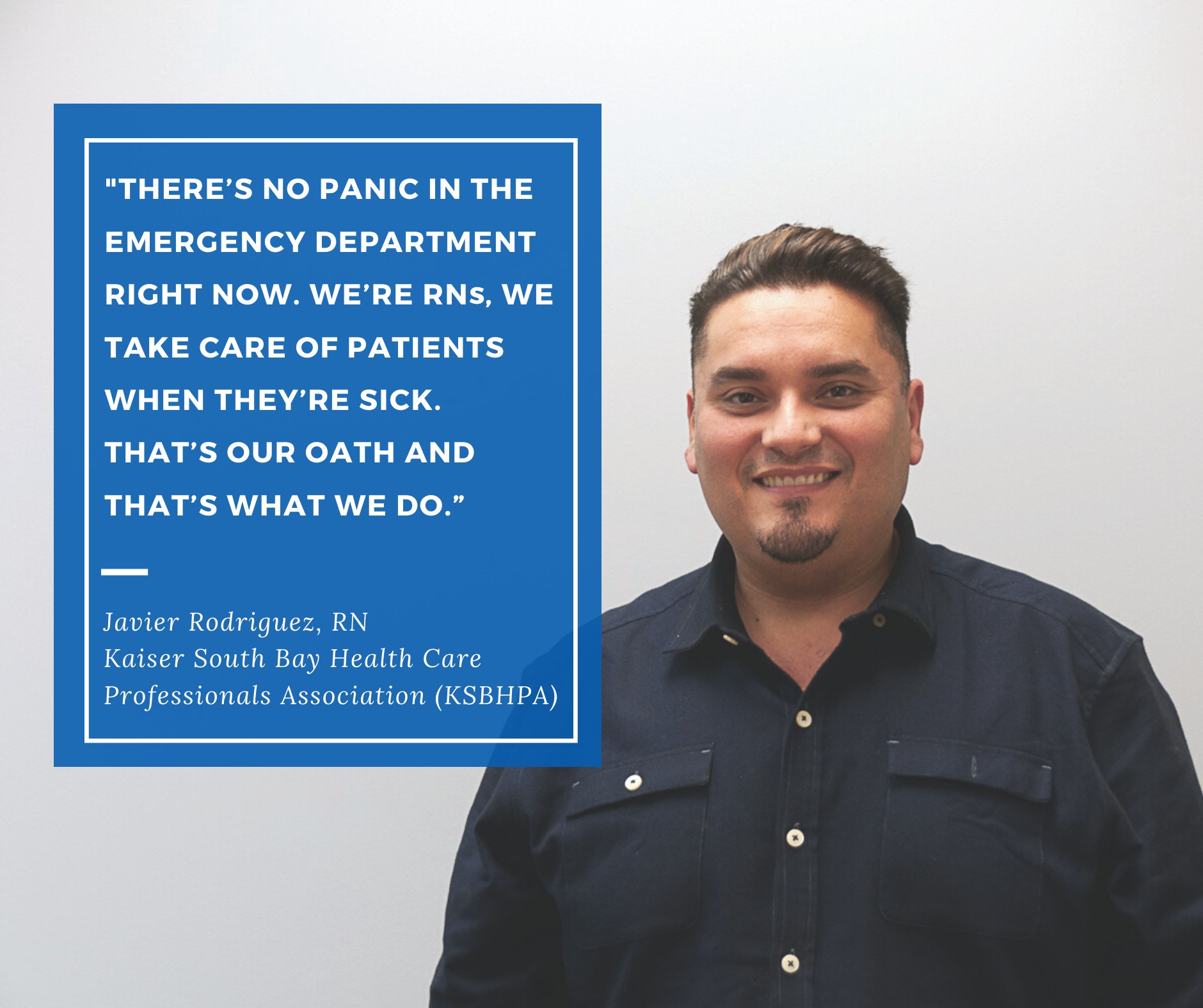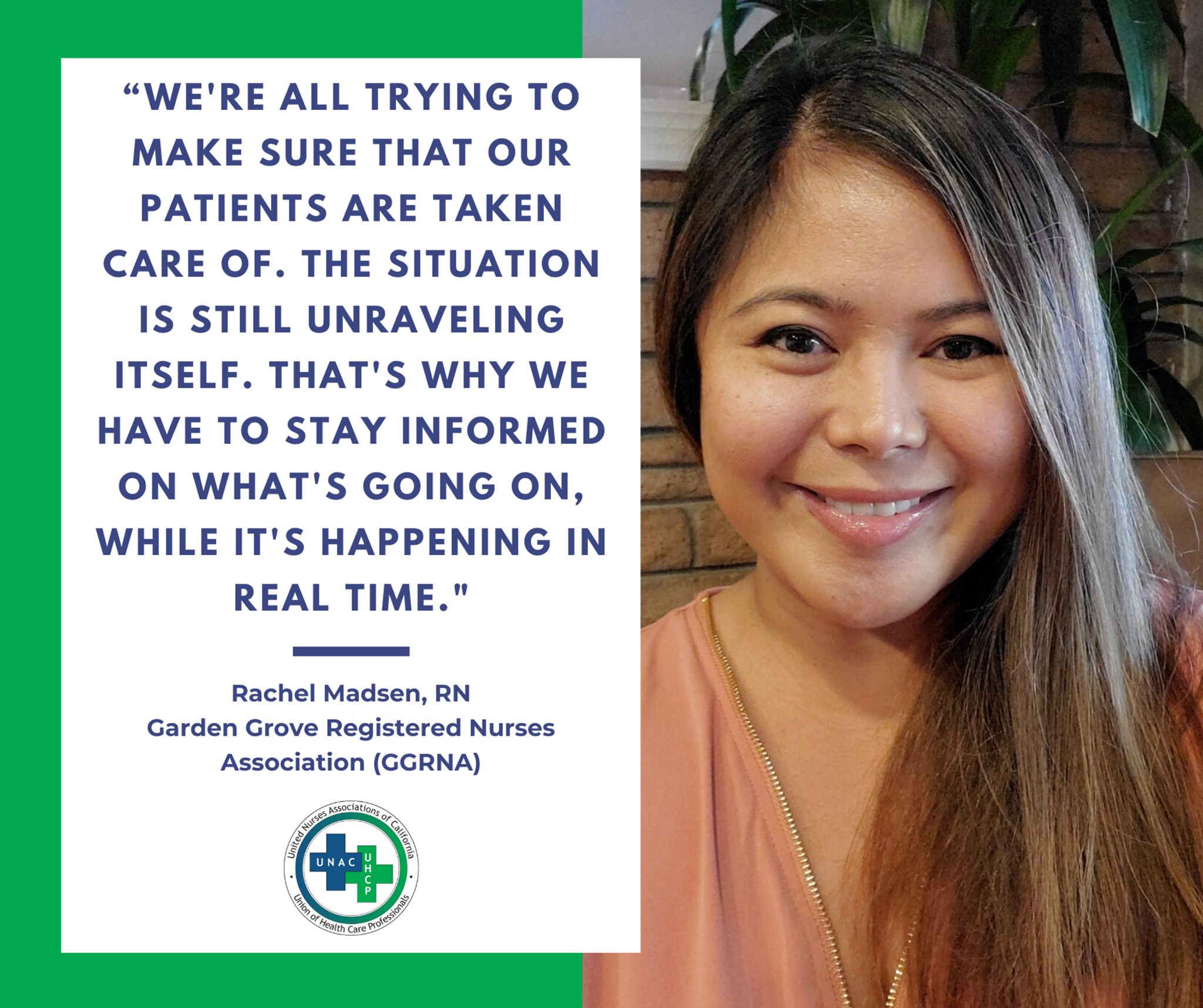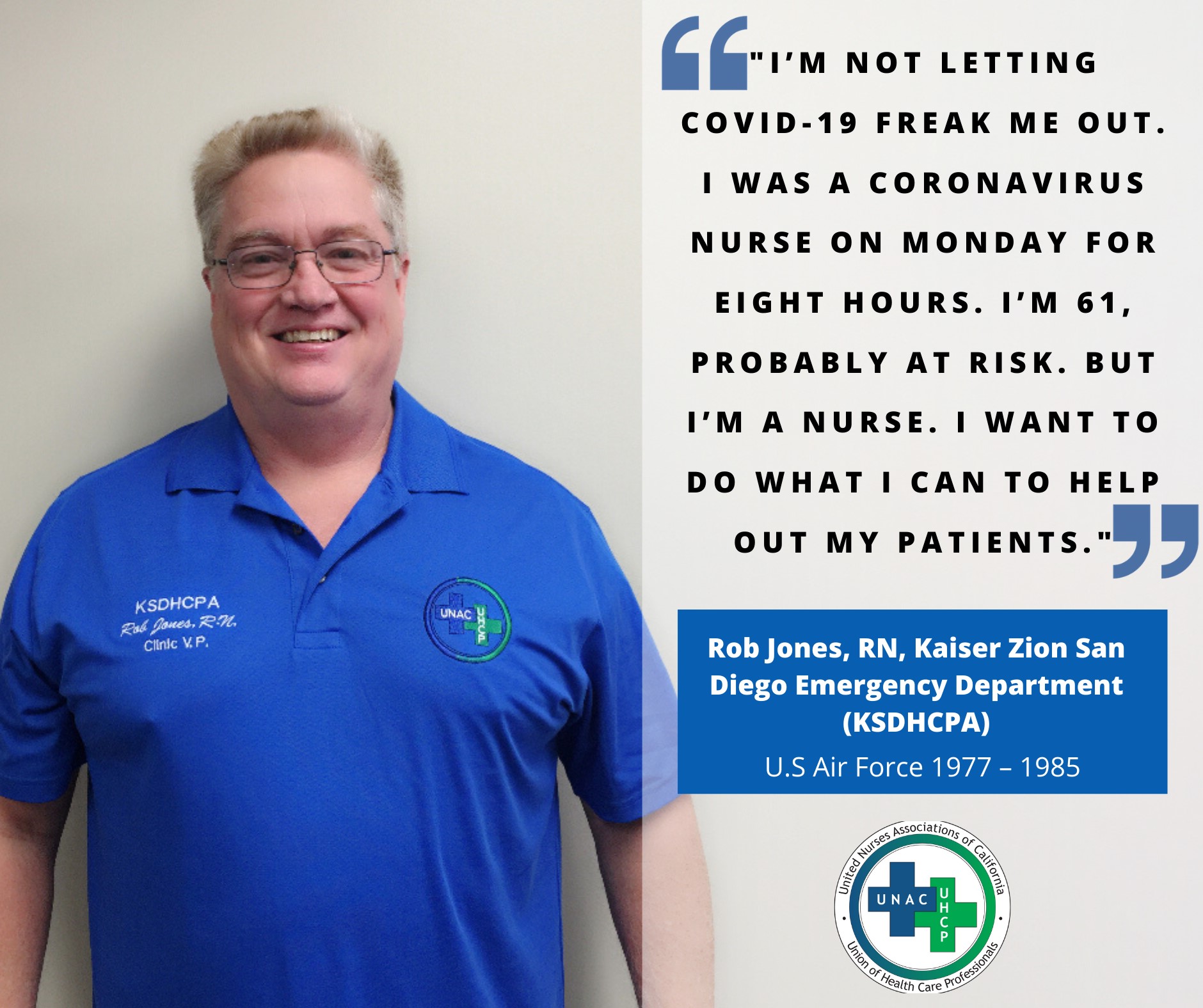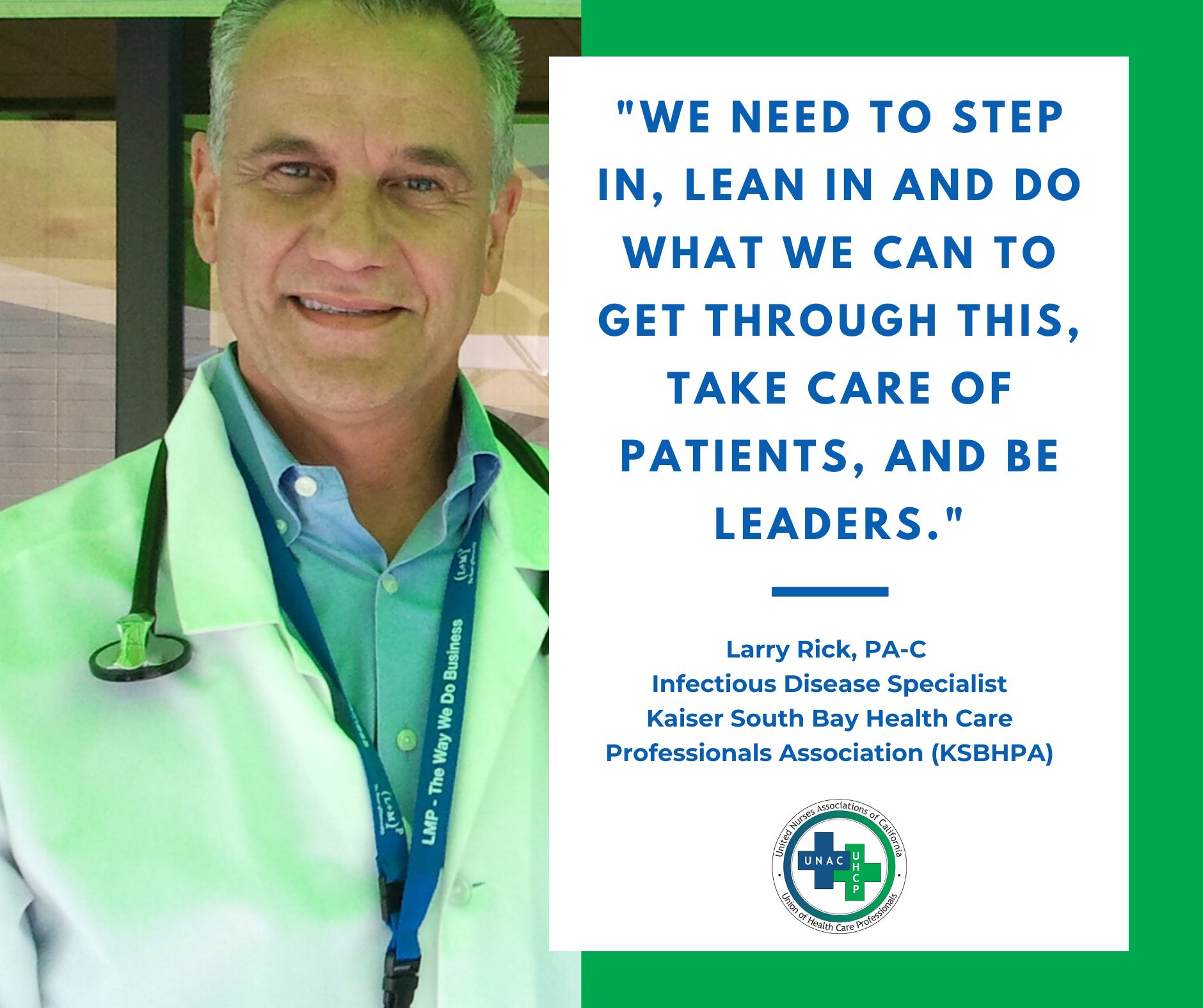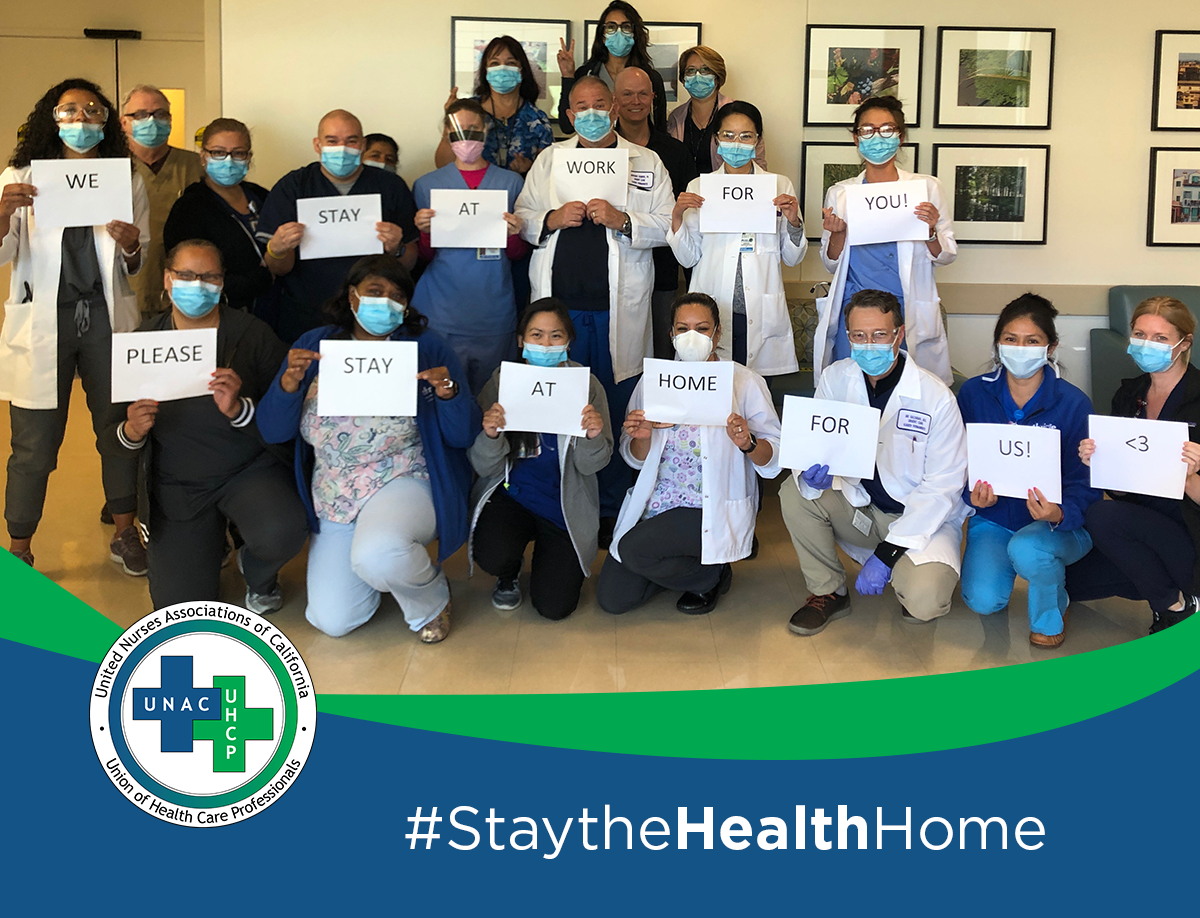Health care workers are not just on the front lines of the battle against the COVID-19 pandemic, they are the tip of the spear. Few professionals fight more heroically to contain and defeat the coronavirus, and fewer still take the types of risks they take to heal infected patients.
We hear from members of the United Nurses Associations of California/Union of Health Care Professionals (UNAC/UHCP), which represents more than 32,000 registered nurses and other health care professionals in California and Hawaii. Hear their stories, in their own words, from the front of the front lines.
Peter Sidhu, registered nurse, Kaiser Permanente Medical Center, Woodland Hills (Los Angeles).
“I’m a critical care nurse and this is a critical moment. I’m here to step up and show the world what we can do. I went into this to help people, not to be afraid. I’ll take care of any patients in the [intensive care unit], no matter who they are or why they’re there. I’m not going to leave my co-workers stranded.
“We are first responders and we lead by example. I saw 20-plus-year nurses out there, volunteering to be at the screening tent. We’re there for our patients. When people come at us with, ‘Aren’t you afraid?’ I say, ‘This is an emergency. If I don’t do it, who will?’
--
Javier Rodriguez, registered nurse, Kaiser Permanente Medical Center, South Bay (Los Angeles County).
"There’s been a lot of uncertainty about this virus from the beginning, but people are holding up. There’s a serious, somber tone. Morale is pretty stable. We’re all reminding one another of our primary purpose in life.
“We’ve chosen this career, it’s altruistic and like no other. We’re RNs. We signed up to take care of patients. That doesn’t mean when they’re well, it means when they’re sick. We’re the front lines. That’s the nurse’s oath and that’s what we do."
--
Rachel Madsen, registered nurse, Garden Grove Hospital and Medical Center (Garden Grove)
“This is the first time I’ve seen anything like this. We're all trying to make sure that our patients are taken care of. As nurses, we are still pushing for the information we need to do our jobs, even when it’s difficult. Our management has been reaching out to us and keeping us informed. We’re doing town hall meetings, calls with our CFO and CEO, and we're able to directly ask them questions.
“We need to pay attention. The situation is still unraveling itself. That's why we have to stay informed on what's going on, while it's happening in real time.”
--
Rob Jones, registered nurse, Kaiser Permanente Medical Center (San Diego)
“I’m not letting COVID-19 freak me out. I’m 61, probably at risk. But I’m a nurse. I want to do what I can to help out my patients. I’m also ex-military. I look at it as, “You’ve got to do your duty,” and my duty is to help people.
“I want to do what I can. I don’t want to put anybody at risk, including myself or my family, but if I’m going to be doing this, then I want to do the best job I can.”
--
Larry Rick, certified physician’s assistant, Kaiser Permanente Medical Center, South Bay
“I live in the world of infectious diseases. I've had to walk into exam rooms every week of my entire career. And, in the back of my mind, I am wondering: ‘Am I going to die from this visit?’ You have to keep your wits about you. Fear cannot drive our decisions. Every week we put ourselves at risk. We’re health care professionals; we’re built to do this.
“Now, I remain cognizant of every place that I touch. I wash my hands more. I bow. I don't shake hands. I don't do the fist bump or the elbow bump anymore. Because right now we have to do social distancing. Hand washing, distancing are the things I keep outlining over and over again. These are the actions that I have taken my entire career to stay away from infections. What can we do? We can change our behavior.”
